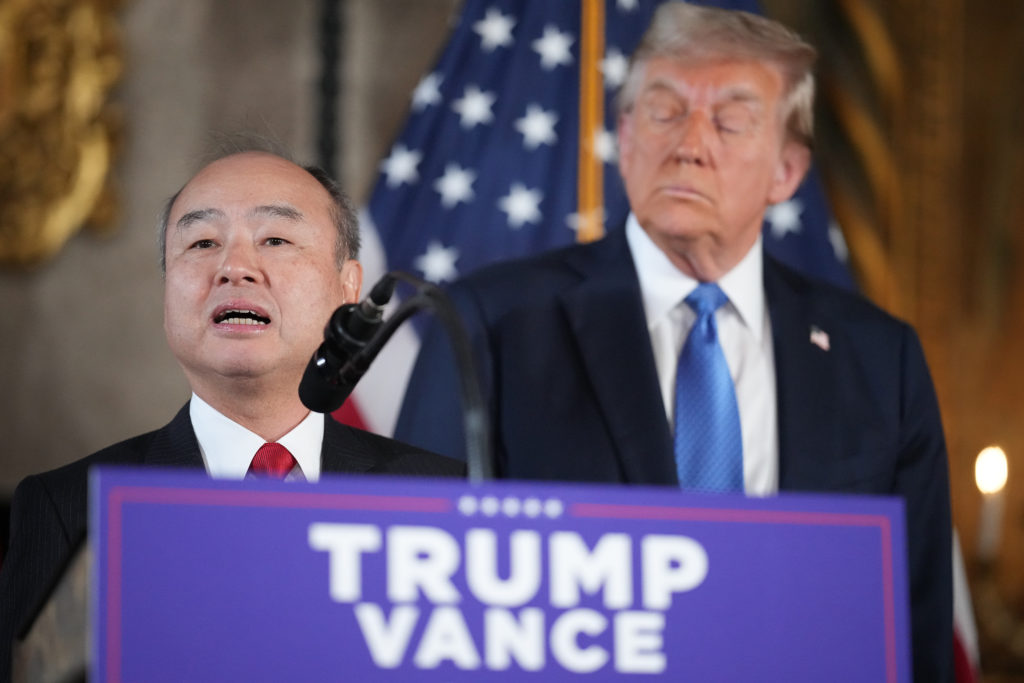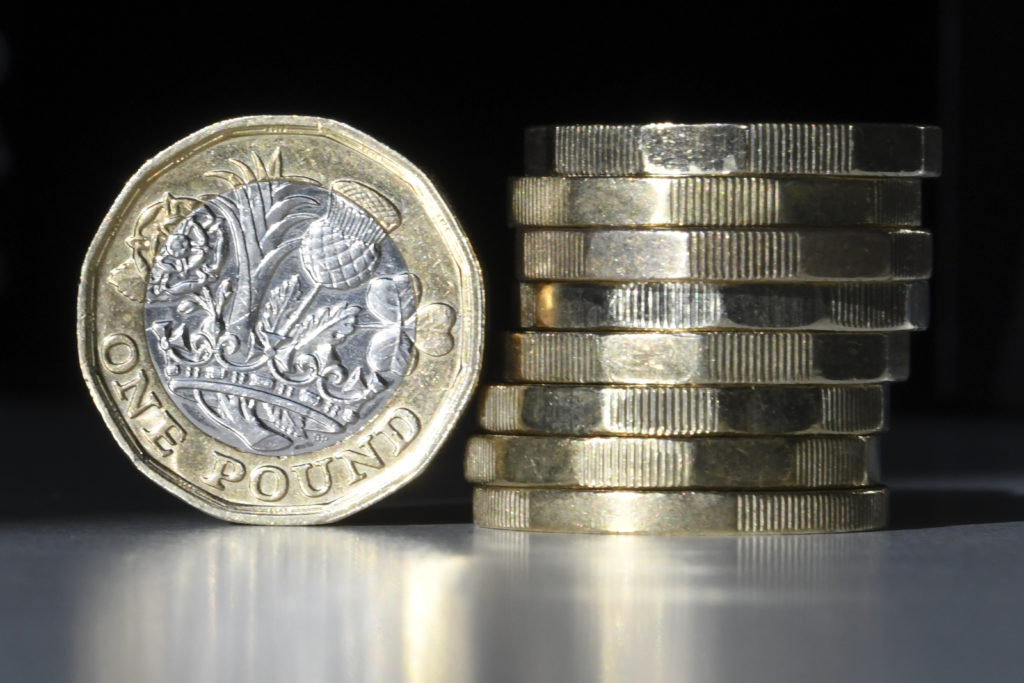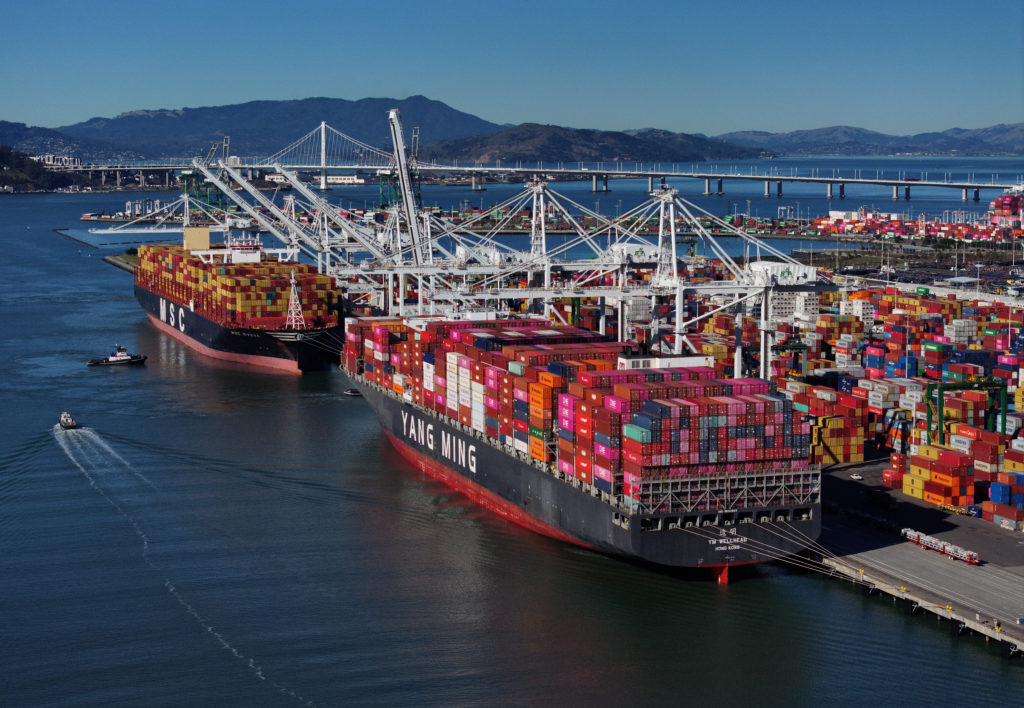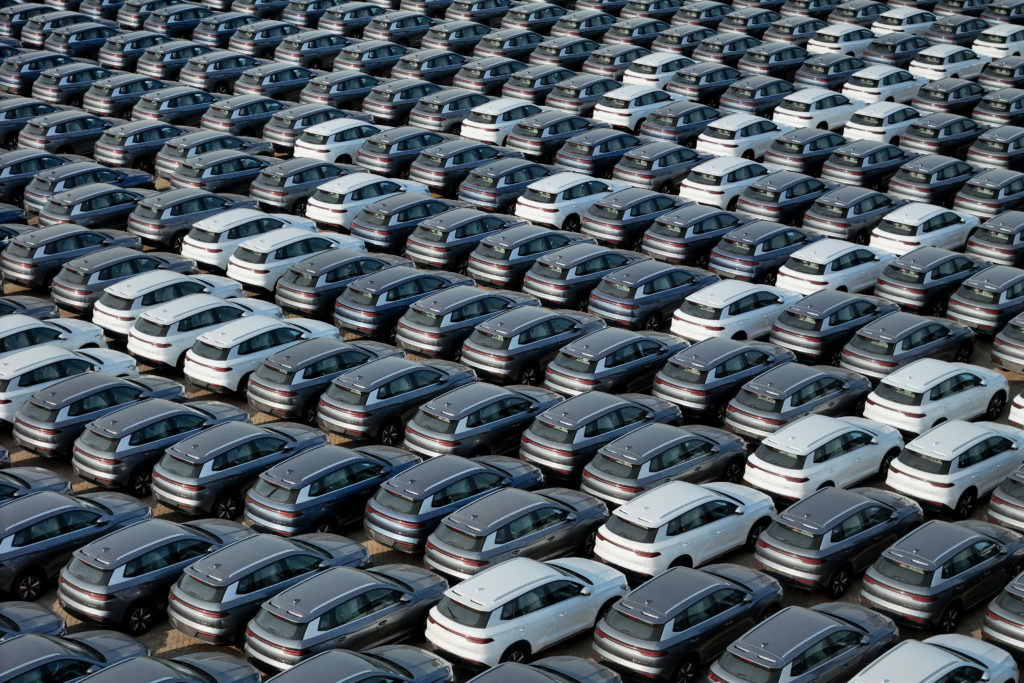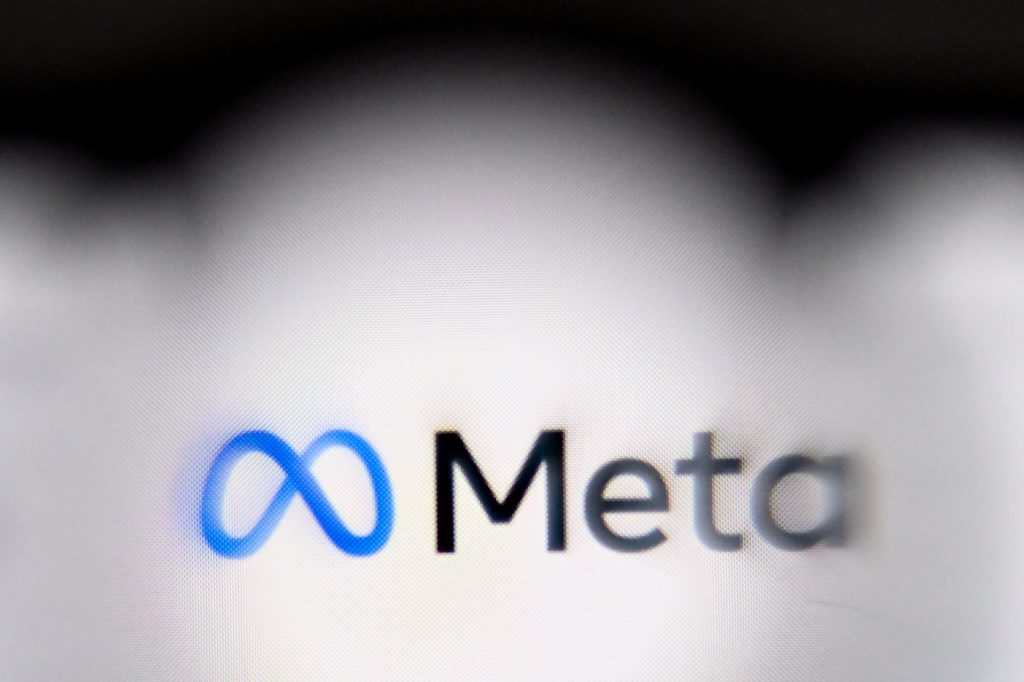US President-elect Donald Trump on Monday praised Japan’s SoftBank for its decision to invest $100 billion in the United States and create 100,000 new jobs, a big win for his incoming administration.”This historic investment is a monumental demonstration of confidence in America’s future,” Trump said during a press conference at his Mar-a-Lago residence in Florida, flanked by SoftBank chief executive Masayoshi Son. “It will help ensure that artificial intelligence, emerging technologies and other industries of tomorrow are built, created and grown right here in the USA,” added Trump, who takes office from US President Joe Biden next month.Speaking alongside Trump, Son confirmed the investment company’s financial commitment, adding that Trump’s victory had “tremendously increased” his confidence in the US economy. “I am truly excited to make this happen,” added Son, 67.- Second commitment -Son’s announcement is around double the amount he committed SoftBank to in December 2016, shortly before Trump began his first term as president. The Japanese investment holding company ultimately parted with around $100 billion through its Vision Fund, with much of the money supplied by sovereign wealth funds in Saudi Arabia and the United Arab Emirates.”President Trump is a double-down president,” Son said on Monday, adding: “I’m going to have to double down.”Son made his name with successful early investments in Chinese e-commerce titan Alibaba and internet pioneer Yahoo, but has also bet on catastrophic failures such as WeWork.He has repeatedly said that “artificial superintelligence” will arrive in a decade, bringing new inventions, new medicine, new knowledge and new ways to invest.The SoftBank Group posted a bumper second-quarter net profit last month, returning to the black after net losses in the first quarter and the previous financial year.The company indicated back in March that it had $26 billion ready to be deployed for new investments.- Tariff worries -Stephen Moore, an economic advisor to Donald Trump, said the announcement marked a “great day.””The importation of capital into the US is a huge leading indicator for jobs and prosperity to come,” Moore, an economist at the conservative Heritage Foundation, told AFP in a message.On the campaign trail, Trump pledged to boost the US economy by cutting red tape and fast-tracking investments, including into the oil and gas sector.US financial markets surged following his victory on November 5, with the tech-rich Nasdaq Composite index and the broad-based S&P 500 both hitting fresh records. Despite the enthusiasm in the markets, some analysts have voiced concern that Trump’s proposals to implement new tariffs on US imports and deport millions of undocumented workers could end up hurting growth, and causing a spike in inflation.”The increased likelihood of substantial new tariffs on US imports would have the most consequential effect on economic growth,” economists at Wells Fargo wrote in a recent note to clients, adding they had “bumped up” their inflation outlook and slightly cut their GDP forecast following Trump’s win. Other analysts say the impact of Trump’s tariff plans will largely depend on how they are actually implemented. “The impact on inflation need not be particularly significant for monetary policy,” economists at Goldman Sachs wrote in a recent investor note. But, they added “this could change if the White House imposes a 10 percent universal tariff,” referring to one of Trump’s proposals on the campaign trail. Speaking in Mar-a-Lago on Monday, Trump insisted that, “properly used,” tariffs would be positive for the US economy. “Our country right now loses to everybody,” he said. “Almost nobody do we have a surplus with.””Tariffs will make our country rich,” he added.
Mon, 16 Dec 2024 19:24:50 GMT

